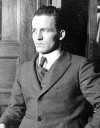 After rising from clerk to sales executive in the National Cash Register Co., Watson became president of the Computing-Tabulating-Recording Co., which made scales, time clocks, and tabulators that sorted information using punched cards—all forerunners of mainframe computers. Watson renamed the company International Business Machines Corp. (IBM) in 1924 and became its chairman in 1949, widening IBM’s line to include electronic computers. What one-word motto did Watson promote at IBM? Discuss
After rising from clerk to sales executive in the National Cash Register Co., Watson became president of the Computing-Tabulating-Recording Co., which made scales, time clocks, and tabulators that sorted information using punched cards—all forerunners of mainframe computers. Watson renamed the company International Business Machines Corp. (IBM) in 1924 and became its chairman in 1949, widening IBM’s line to include electronic computers. What one-word motto did Watson promote at IBM? Discuss
Source: The Free Dictionary
 Bono was an American record producer, singer, actor, and politician. He began his music career working with legendary producer Phil Spector in the early 1960s and went on to write, arrange, and produce a number of hit singles like “I Got You Babe” and “The Beat Goes On,” which he performed with his then-wife Cher. The duo also hosted a popular television variety show in the 1970s. Later, Bono became involved in politics and served as a member of the US House of Representatives. How did he die?
Bono was an American record producer, singer, actor, and politician. He began his music career working with legendary producer Phil Spector in the early 1960s and went on to write, arrange, and produce a number of hit singles like “I Got You Babe” and “The Beat Goes On,” which he performed with his then-wife Cher. The duo also hosted a popular television variety show in the 1970s. Later, Bono became involved in politics and served as a member of the US House of Representatives. How did he die? 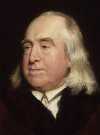 Bentham was a British moral philosopher and legal theorist. A precocious student, he graduated from Oxford at age 15. In his writings, he became the earliest expounder of utilitarianism—the theory that the rightness or wrongness of an action is determined by its usefulness in bringing about the greatest happiness for all those affected by it. His work inspired much reform legislation, especially regarding prisons. What was done with Bentham’s body after his death, in accordance with his will?
Bentham was a British moral philosopher and legal theorist. A precocious student, he graduated from Oxford at age 15. In his writings, he became the earliest expounder of utilitarianism—the theory that the rightness or wrongness of an action is determined by its usefulness in bringing about the greatest happiness for all those affected by it. His work inspired much reform legislation, especially regarding prisons. What was done with Bentham’s body after his death, in accordance with his will? 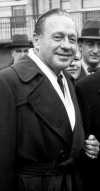 Benny made his vaudeville debut playing the violin in 1912. After discovering a talent for comedy while in the navy, he returned to vaudeville as a comedian. He made his film debut in 1927 and appeared in 18 films between 1930 and 1945. His weekly radio show—1932 to 1955—and TV show—1950 to 1965—won loyal audiences, and he became famous for a unique comic style characterized by subtle verbal inflection, meaningful pauses, and the stage image of a vain, stingy man. What was Benny’s real name?
Benny made his vaudeville debut playing the violin in 1912. After discovering a talent for comedy while in the navy, he returned to vaudeville as a comedian. He made his film debut in 1927 and appeared in 18 films between 1930 and 1945. His weekly radio show—1932 to 1955—and TV show—1950 to 1965—won loyal audiences, and he became famous for a unique comic style characterized by subtle verbal inflection, meaningful pauses, and the stage image of a vain, stingy man. What was Benny’s real name? 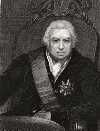 Banks was a British naturalist, botanist, and patron of the sciences. After inheriting a large fortune in his early 20s, he began traveling extensively, collecting plant and natural history specimens. He outfitted and accompanied James Cook’s voyage around the world, during which time he collected many biological specimens that had never before been classified. His herbarium, one of the most important in existence, and library are now at the British Museum. What plant genus was named after him?
Banks was a British naturalist, botanist, and patron of the sciences. After inheriting a large fortune in his early 20s, he began traveling extensively, collecting plant and natural history specimens. He outfitted and accompanied James Cook’s voyage around the world, during which time he collected many biological specimens that had never before been classified. His herbarium, one of the most important in existence, and library are now at the British Museum. What plant genus was named after him? 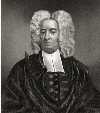 Mather was an American Puritan leader remembered for his role in the Salem witch trials. Although his Memorable Providences Relating to Witchcraft and Possessions fed the hysteria that led to the witch hunts, he disapproved of some of the trials and argued against the use of “spectral evidence,” a type of evidence based on dreams. Deeply interested in science, Mather was the first native-born American to be a fellow of the Royal Society and was an early supporter of what medical method?
Mather was an American Puritan leader remembered for his role in the Salem witch trials. Although his Memorable Providences Relating to Witchcraft and Possessions fed the hysteria that led to the witch hunts, he disapproved of some of the trials and argued against the use of “spectral evidence,” a type of evidence based on dreams. Deeply interested in science, Mather was the first native-born American to be a fellow of the Royal Society and was an early supporter of what medical method? 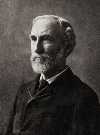 Gibbs was an American mathematical physicist whose contributions to physical chemistry and thermodynamics have had a profound effect on industry, notably in the production of ammonia. He formulated the concept of chemical potential, and, in mathematics, was influential in developing vector analysis. Gibbs also contributed to crystallography, the determination of planetary and cometary orbits, and electromagnetic theory. His doctorate was the first granted in the US for what field?
Gibbs was an American mathematical physicist whose contributions to physical chemistry and thermodynamics have had a profound effect on industry, notably in the production of ammonia. He formulated the concept of chemical potential, and, in mathematics, was influential in developing vector analysis. Gibbs also contributed to crystallography, the determination of planetary and cometary orbits, and electromagnetic theory. His doctorate was the first granted in the US for what field? 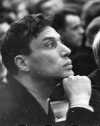 Pasternak was a Russian author whose novel Doctor Zhivago, an epic of wandering, spiritual isolation and love amid the harshness of the revolution and its aftermath, became a bestseller in the West but was circulated only in secrecy in the Soviet Union until 1987. Pasternak was awarded the Nobel Prize for Literature in 1958, but he was forced to decline it because of Soviet opposition to his work. Why was Pasternak’s name said to have been crossed off an execution list by Joseph Stalin?
Pasternak was a Russian author whose novel Doctor Zhivago, an epic of wandering, spiritual isolation and love amid the harshness of the revolution and its aftermath, became a bestseller in the West but was circulated only in secrecy in the Soviet Union until 1987. Pasternak was awarded the Nobel Prize for Literature in 1958, but he was forced to decline it because of Soviet opposition to his work. Why was Pasternak’s name said to have been crossed off an execution list by Joseph Stalin?  Miranda was a Brazilian singer and actress who, in the 1930s, was the most popular recording artist in Brazil, where she appeared in five films. Recruited by a Broadway producer, she made her US film debut in Down Argentine Way. Typecast as the “Brazilian Bombshell” and given such caricatural roles as “The Lady in the Tutti-Frutti Hat” in The Gang’s All Here, she became the highest-paid female performer in the US during World War II. What was her final film?
Miranda was a Brazilian singer and actress who, in the 1930s, was the most popular recording artist in Brazil, where she appeared in five films. Recruited by a Broadway producer, she made her US film debut in Down Argentine Way. Typecast as the “Brazilian Bombshell” and given such caricatural roles as “The Lady in the Tutti-Frutti Hat” in The Gang’s All Here, she became the highest-paid female performer in the US during World War II. What was her final film? 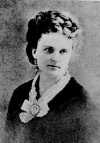 A St. Louis, Missouri, native, Chopin moved to Louisiana when she married at the age of 20. After her husband passed away, she returned to St. Louis and began her professional writing career. Now considered a forerunner of 20th-century feminist authors, Chopin gained attention with her many short stories featuring Creole tales and New Orleans culture but virtually stopped publishing after her novel The Awakening was heavily criticized on what grounds?
A St. Louis, Missouri, native, Chopin moved to Louisiana when she married at the age of 20. After her husband passed away, she returned to St. Louis and began her professional writing career. Now considered a forerunner of 20th-century feminist authors, Chopin gained attention with her many short stories featuring Creole tales and New Orleans culture but virtually stopped publishing after her novel The Awakening was heavily criticized on what grounds?